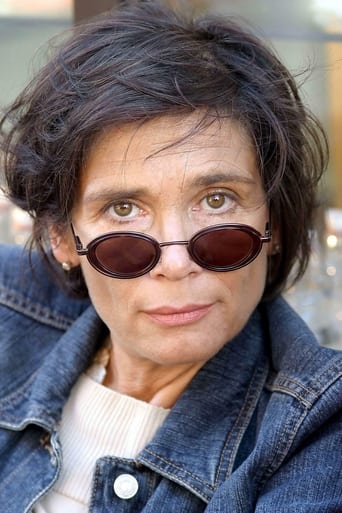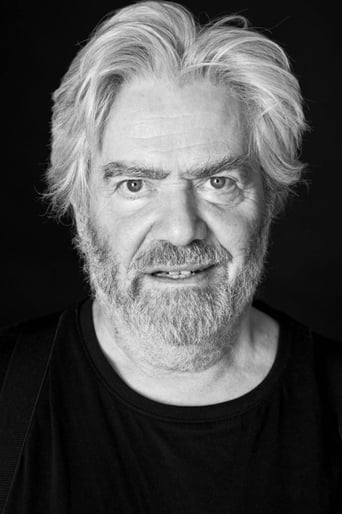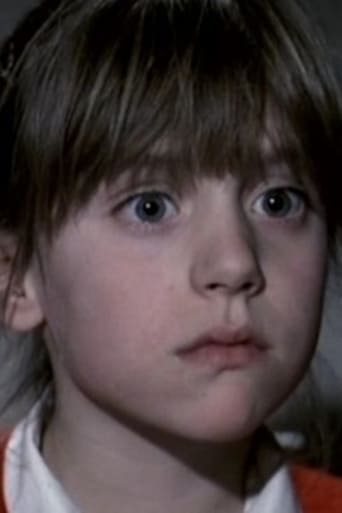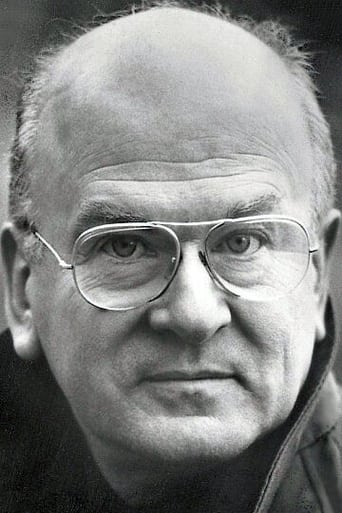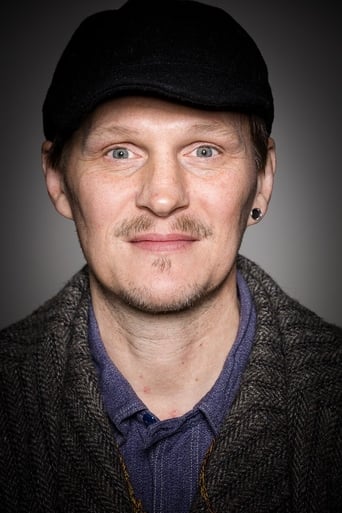Raetsonwe
Redundant and unnecessary.
SunnyHello
Nice effects though.
InformationRap
This is one of the few movies I've ever seen where the whole audience broke into spontaneous, loud applause a third of the way in.
Erica Derrick
By the time the dramatic fireworks start popping off, each one feels earned.
oOoBarracuda
From my introduction to Michael Haneke through his 1997 film, Funny Games, I knew he shared an important quality with one of my favorite filmmakers. Like David Lynch, Michael Haneke doesn't care if the audience is comfortable while watching his films. Haneke extends his scenes past the point where the audience watching thinks is necessary, creating a hypnotic trance that one is unable to look away from. This ability of Haneke's to espouse the audience's attention forces the viewer to become an active participant in his films and thrusts us into an often much-needed self-examination. Haneke's feature film debut, The Seventh Continent takes an in-depth look at the lives of a family chained by the shackles of their expected existence willing to go to extreme measures to escape the monotonous confines of their daily existence.The long takes Haneke favors throughout The Seventh Continent, introduce the audience to a young family living in Europe that live in precisely the way that is expected of them. Georg Schober (Dieter Berner) works diligently at his career, always placing himself in the best possible position to advance through promotions and better situate himself in his profession. Anna Schober (Birgit Doll), an optometrist, steadfastly maintains her family's home, dutifully completing all the tasks and errands to keep the everyday lives of her family running. Anna is also reacting to the death of a parent, which has devastated her brother, assuming the role of the strong focused sibling taxed with the burden of maintaining her parents' business. The youngest member of the family, Evi, fills her time coloring pictures, doing her homework, and occasionally causing mischief at school by feigning blindness. Neither Georg's career advancements, Anna's mourning, nor Evi's misbehavior is consequential to the story--they are simply moments that happen in each of their lives and fills their days. This is precisely Haneke's point; most of what we do in our lives are mundane activities which fill our time until we die. Whether it be a scene filmed in real time at a car wash or listening to someone relay a story during an eye exam, Haneke gives us these moments in as similar a way as they actually occur, removing all sense of grandiose filmmaking, forcing the audience to see themselves in the lives of those depicted on screen. It's hypnotizing they way we can scoff at collective suicide, yet through watching the events that lead up to the act come to understand the universality of the expectations we adhere to. Every move is repetitive, the same food is served every day at breakfast, the same pommel horse is jumped over in gym class, the same filling station is visited when the car is low on fuel. We often live our lives thinking of the future, fooling ourselves into believing that the monotony we serve daily is crucial to our growth until we are shocked to learn that the future we have been striving towards has become the past. We get so lost in the day-to-day that we need Haneke to make clear that the way we actually live our lives doesn't make all that much sense once analyzed. The cold emotionless state maintained in the Schober home is sobering to watch. No amount of intimacy brings the family closer together. Even after making love, Georg and Anna immediately return to the distance between each other that fills their days. Not only does one hardly see any affection between the members of the Schober family, but we also rarely see them enjoy conversations with each other. The cold, detached atmosphere isn't confined to their home, either. Each time they exchange currency for a service, the audience is afforded a glimpse into the lives of everyone they interact with, each doing their job or performing a service while all vitality seems to have been drained from their being. Through the entire runtime of The Seventh Continent, we don't see a single meaningful human connection. There is even a scene in which a man recently released from his employment with Georg, returns for his things and isn't given a single embrace of encouragement or a kind word. His appearance disrupts the work because he is unexpected, further cementing Haneke's notion that our lives are simply made up of a series of repeated actions, and we are stricken by the break from routine when interrupted. Despite the lack of compassionate connectivity, I would argue that Haneke's feature is one of the most humanistic films I have recently seen, because it gives hope to our existence and alerts us to think critically about our society.
Maz Murdoch (asda-man)
I saw this one last night and was extremely disturbed. This has got to be one of the most depressing films ever made.It's slow to start off with, but I was never bored, however perhaps this is down to me being a huge fan of Michael Haneke and knowing the outcome (which I stupidly read by mistake).I felt immersed in the mundane and bleak lives of the family and by the second half I was completely hooked. The film is incredibly cold, distant and unsentimental which makes the tragic second half even more painful to watch. There are some extremely powerful and disturbing images which almost made me cry (something I hardly ever do in a film.) This is powerful, heart-breaking cinema which is magnificently directed and acted. Chills shot up my spine at the end and I went to bed feeling shaken and appalled. Don't touch this film if you're a manic depressive, but please do touch it if you like powerful, brave and disturbing film-making.
tomgillespie2002
A middle-class family, consisting of father Georg (Dieter Berner), mother Anna (Birgit Doll), and young daughter Evi (Leni Tanzer) live out their routine daily lives in apparent discomfort. The film is split into three sections - 1987, 1988, and 1989. The first two years, we are given an insight into their thinking as Anna narrates letters written to her parents. We witness the mundaneness of their lives in scenes showing them eating breakfast, at work, going through a car wash, driving in their car. They are trapped by their repetitive surroundings in an unavoidable consumerist world. The third section sees the parents quitting their jobs, buying power tools, and emptying their bank accounts. They tell people they're going to Australia, only they plan to destroy their home and kill themselves. Haneke is the master of the cold and the uncomfortable. This was his debut feature, only he seemed to have already mastered this skill. In his later films, we witness brutal animal slaughter in Benny's Video (1992), genital mutilation in The Piano Teacher (2001), and possibly the most shocking suicide ever depicted on film in his masterpiece Hidden (2005). In The Seventh Continent, we know what is coming. It is laid out quite early in the film. When it comes, it is every bit as unpleasant as you would hope it wouldn't be. Haneke doesn't need blood or dramatic music. Instead he just lets us hear the last gargled breaths, taking place off-camera, of someone taken an overdose of pills. Powerful, terrible and profoundly disturbing. Haneke, in my opinion, is the world's greatest living director. Granted, the likes of Godard and Herzog are still making films, but their heyday was in the 1960's and 70's respectively. Haneke is in his prime, and their is no-one is making more skillful films. He based The Seventh Continent on a newspaper article he read about a family that committed suicide in a similar fashion (as we learn over the end credits), and uses it as a commentary on a world obsessed with formality. This is certainly not an enjoyable film, but it is one that will linger with me for a long time, which is similar to the effect Hidden had on me. It will occasionally test your patience (scenes are repeated and their are long periods without dialogue), but its power is undeniable. An assured debut.
Bill-276
It's very tough assigning grades or "stars" to the films of Michael Haneke. He tends to trap his audiences within the context of the films themselves, which makes any judgment of the film a reflection of the viewer on his or herself. This is very difficult to do as a director, and very uncomfortable for Haneke's audiences--and Haneke wouldn't have it any other way.That said, this is my 4th Haneke film, and I was impressed to see the vision, style and moral perspective Haneke HAMMERS his audiences with as vividly present in "The Seventh Continent", as all of the films I've seen Haneke has released since. However, once again, as fascinated as I am personally by Haneke's style and efficiency, "The Seventh Continent" is another Haneke film that is difficult to recommend to what I would consider a normal functioning adult.I don't doubt that the story told in "The Seventh Continent" could happen. I don't doubt that it did happen very similarly to the way it was presented. What I take issue with is that it comes off as a stinging rebuke of the monotony of modern middle-class life (television's influence, etc...), when more likely, what happened to the family the story is based on was probably caused by something more tangible and less speculative. But even if that wasn't the case with the family the story is based on, the presentation of the fictional family in this particular film is intended to assign blame. And the daily mundane and boring rituals of a typical modern family (even monogamous marital sex) are clearly guilty in this film. And I don't think I personally agree with Haneke's assessment on this issue. (But that's between me and Mr. Haneke ;) )My recommendation for now is to avoid Haneke's early work in general (maybe up to "The Piano Teacher"). It's not that there isn't much social value in Haneke's early films, it's that Haneke tends to focus on the EXTREME fringes of the human condition in his early work where insanity, mental instability, sociopaths and psychopaths are always going to linger. No amount of cultural change or faults addressing modern suburban middle class existence (or upper class apathy and ennui) is going to change that fact.The ending and central themes of the film did remind me in a lot of ways (and it's been mentioned here as well) of Todd Hayne's brilliantly dark existential drama "Safe" (Julianne Moore, 1995). And though "The Seventh Continent" came out before "Safe", I would highly recommend "Safe" over "The Seventh Continent". As for Haneke, I would recommend "The Piano Teacher" or "The White Ribbon" as the more evolved director starts to catch his stride. Because Michael Haneke has SOME stride!

